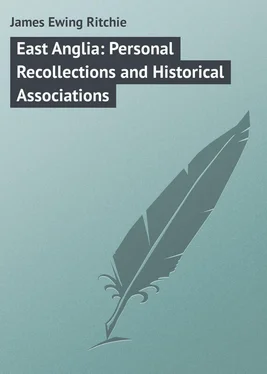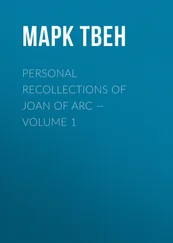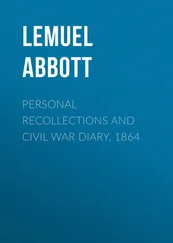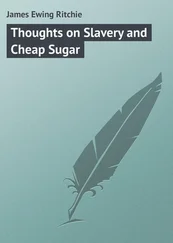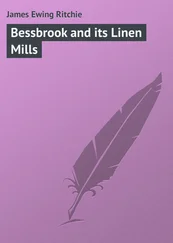James Ritchie - East Anglia - Personal Recollections and Historical Associations
Здесь есть возможность читать онлайн «James Ritchie - East Anglia - Personal Recollections and Historical Associations» — ознакомительный отрывок электронной книги совершенно бесплатно, а после прочтения отрывка купить полную версию. В некоторых случаях можно слушать аудио, скачать через торрент в формате fb2 и присутствует краткое содержание. Жанр: foreign_prose, на английском языке. Описание произведения, (предисловие) а так же отзывы посетителей доступны на портале библиотеки ЛибКат.
- Название:East Anglia: Personal Recollections and Historical Associations
- Автор:
- Жанр:
- Год:неизвестен
- ISBN:нет данных
- Рейтинг книги:5 / 5. Голосов: 1
-
Избранное:Добавить в избранное
- Отзывы:
-
Ваша оценка:
- 100
- 1
- 2
- 3
- 4
- 5
East Anglia: Personal Recollections and Historical Associations: краткое содержание, описание и аннотация
Предлагаем к чтению аннотацию, описание, краткое содержание или предисловие (зависит от того, что написал сам автор книги «East Anglia: Personal Recollections and Historical Associations»). Если вы не нашли необходимую информацию о книге — напишите в комментариях, мы постараемся отыскать её.
East Anglia: Personal Recollections and Historical Associations — читать онлайн ознакомительный отрывок
Ниже представлен текст книги, разбитый по страницам. Система сохранения места последней прочитанной страницы, позволяет с удобством читать онлайн бесплатно книгу «East Anglia: Personal Recollections and Historical Associations», без необходимости каждый раз заново искать на чём Вы остановились. Поставьте закладку, и сможете в любой момент перейти на страницу, на которой закончили чтение.
Интервал:
Закладка:
J. Ewing Ritchie
East Anglia: Personal Recollections and Historical Associations
PRESS NOTICES OF THE FIRST EDITION
‘We cordially recommend Mr. Ritchie’s book to all who wish to pass an agreeable hour and to learn something of the outward actions and inner life of their predecessors. It is full of sketches of East Anglian celebrities, happily touched if lightly limned.’ — East Anglian Daily Times .
‘A very entertaining and enjoyable book. Local gossip, a wide range of reading and industrious research, have enabled the author to enliven his pages with a wide diversity of subjects, specially attractive to East Anglians, but also of much general interest.’ — Daily Chronicle .
‘The work is written in a light gossipy style, and by reason both of it and of the variety of persons introduced is interesting. To a Suffolk or Norfolk man it is, of course, especially attractive. The reader will go through these pages without being wearied by application. They form a pleasant and entertaining contribution to county literature, and “East Anglia” will, we should think, find its way to many of the east country bookshelves.’ — Suffolk Chronicle .
‘The book is as readable and attractive a volume of local chronicles as could be desired. Though all of our readers may not see “eye to eye” with Mr. Ritchie, in regard to political and theological questions, they cannot fail to gain much enjoyment from his excellent delineation of old days in East Anglia.’ — Norwich Mercury .
‘“East Anglia” has the merit of not being a compilation, which is more than can be said of the great majority of books produced in these days to satisfy the revived taste for topographical gossip. Mr. Ritchie is a Suffolk man – the son of a Nonconformist minister of Wrentham in that county – and he looks back to the old neighbourhood and the old times with an affection which is likely to communicate itself to its readers. Altogether we can with confidence recommend this book not only to East Anglians, but to all readers who have any affinity for works of its class.’ — Daily News .
‘Mr. Ritchie’s book belongs to a class of which we have none too many, for when well done they illustrate contemporary history in a really charming manner. What with their past grandeur, their present progress, their martyrs, patriots, and authors, there is plenty to tell concerning Eastern counties: and one who writes with native enthusiasm is sure to command an audience.’ — Baptist .
‘Mr. Ritchie, known to the numerous readers of the Christian World as “Christopher Crayon,” has the pen of a ready, racy, refreshing writer. He never writes a dull line, and never for a moment allows our interest to flag. In the work before us, which is not his first, he is, I should think, at his best. The volume is the outcome of extensive reading, many rambles over the districts described, and of thoughtful observation. We seem to live and move and have our being in East Anglia. Its folk-lore, its traditions, its worthies, its memorable events, are all vividly and charmingly placed before us, and we close the book sorry that there is no more of it, and wondering why it is that works of a similar kind have not more frequently appeared.’ — Northern Pioneer .
‘It has yielded us more gratification than any work that we have read for a considerable time. The book ought to have a wide circulation in the Eastern counties, and will not fail to yield profit and delight wherever it finds its way.’ — Essex Telegraph .
‘Mr. Ritchie has here written a most attractive chapter of autobiography. He recalls the scenes of his early days, and whatever was quaint or striking in connection with them, and finds in his recollections ready pegs on which to hang historical incident and antiquarian curiosities of many kinds. He passes from point to point in a delightfully cheerful and contagious mood. Mr. Ritchie’s reading has been as extensive and careful as his observation is keen and his temper genial; and his pages, which appeared in The Christian World Magazine , well deserve the honour of book-form, with the additions he has been able to make to them.’ — British Quarterly Review .
PREFACE TO THE SECOND EDITION
The chapters of which this little work consists originally appeared in the Christian World Magazine , where they were so fortunate as to attract favourable notice, and from which they are now reprinted, with a few slight additions, by permission of the Editor. In bringing out a second edition, I have incorporated the substance of other articles originally written for local journals. It is to be hoped, touching as they do a theme not easily exhausted, but always interesting to East Anglians, that they may help to sustain that love of one’s county which, alas! like the love of country, is a matter reckoned to be of little importance in these cosmopolitan days, but which, nevertheless, has had not a little share in the formation of that national greatness and glory in which at all times Englishmen believe.
One word more. I have retained some strictures on the clergy of East Anglia, partly because they were true at the time to which I refer, and partly because it gives me pleasure to own that they are not so now. The Church of England clergyman of to-day is an immense improvement on that of my youth. In ability, in devotion to the duties of his calling, in intelligence, in self-denial, in zeal, he is equal to the clergy of any other denomination. If he has lost his hold upon Hodge, that, at any rate, is not his fault.
Clacton-on-Sea,
January , 1893.
CHAPTER I.
A SUFFOLK VILLAGE
Distinguished people born there – Its Puritans and Nonconformists – The country round Covehithe – Southwold – Suffolk dialect – The Great Eastern Railway.
In his published Memoirs, the great Metternich observes that if he had never been born he never could have loved or hated. Following so illustrious a precedent, I may observe that if I had not been born in East Anglia I never could have been an East Anglian. Whether I should have been wiser or better off had I been born elsewhere, is an interesting question, which, however, it is to be hoped the public will forgive me if I decline to discuss on the present occasion.
In a paper bearing the date of 1667, a Samuel Baker, of Wattisfield Hall, writes: ‘I was born at a village called Wrentham, which place I cannot pass by the mention of without saying thus much, that religion has there flourished longer, and that in much piety; the Gospel and grace of it have been more powerfully and clearly preached, and more generally received; the professors of it have been more sound in the matter and open and steadfast in the profession of it in an hour of temptation, have manifested a greater oneness amongst themselves and have been more eminently preserved from enemies without (albeit they dwell where Satan’s seat is encompassed with his malice and rage), than I think in any village of the like capacity in England; which I speak as my duty to the place, but to my particular shame rather than otherwise, that such a dry and barren plant should spring out of such a soil.’ I resemble this worthy Mr. Baker in two respects. In the first place, I was born at Wrentham, though at a considerably later period of time than 1667; and, secondly, if he was a barren plant – he of whom we read, in Harmer’s Miscellaneous Works, that ‘he was a gentleman of fortune and education, very zealous for the Congregational plan of church government and discipline, and a sufferer in its bonds for a good conscience’ – what am I?
Читать дальшеИнтервал:
Закладка:
Похожие книги на «East Anglia: Personal Recollections and Historical Associations»
Представляем Вашему вниманию похожие книги на «East Anglia: Personal Recollections and Historical Associations» списком для выбора. Мы отобрали схожую по названию и смыслу литературу в надежде предоставить читателям больше вариантов отыскать новые, интересные, ещё непрочитанные произведения.
Обсуждение, отзывы о книге «East Anglia: Personal Recollections and Historical Associations» и просто собственные мнения читателей. Оставьте ваши комментарии, напишите, что Вы думаете о произведении, его смысле или главных героях. Укажите что конкретно понравилось, а что нет, и почему Вы так считаете.
